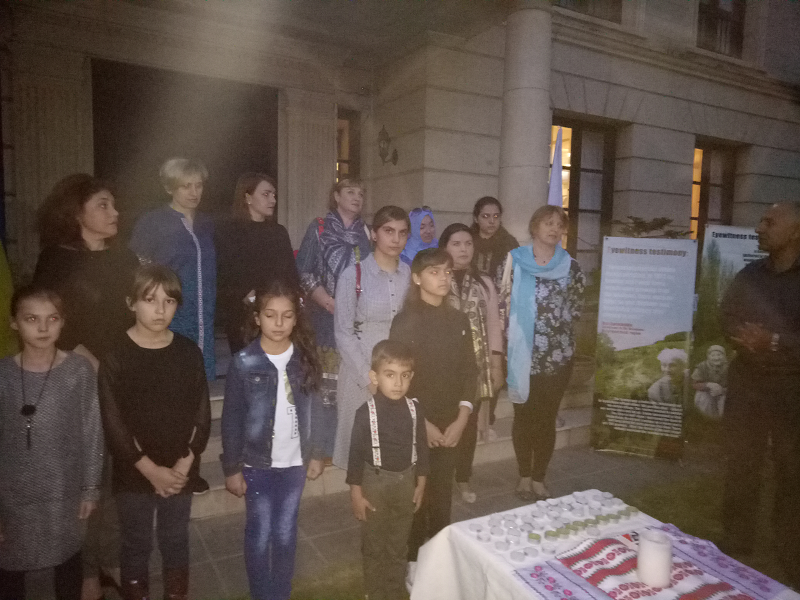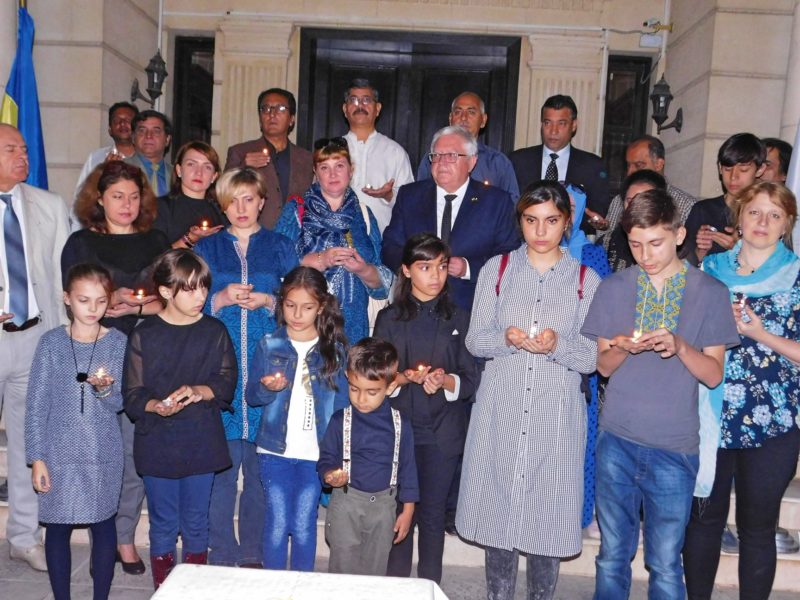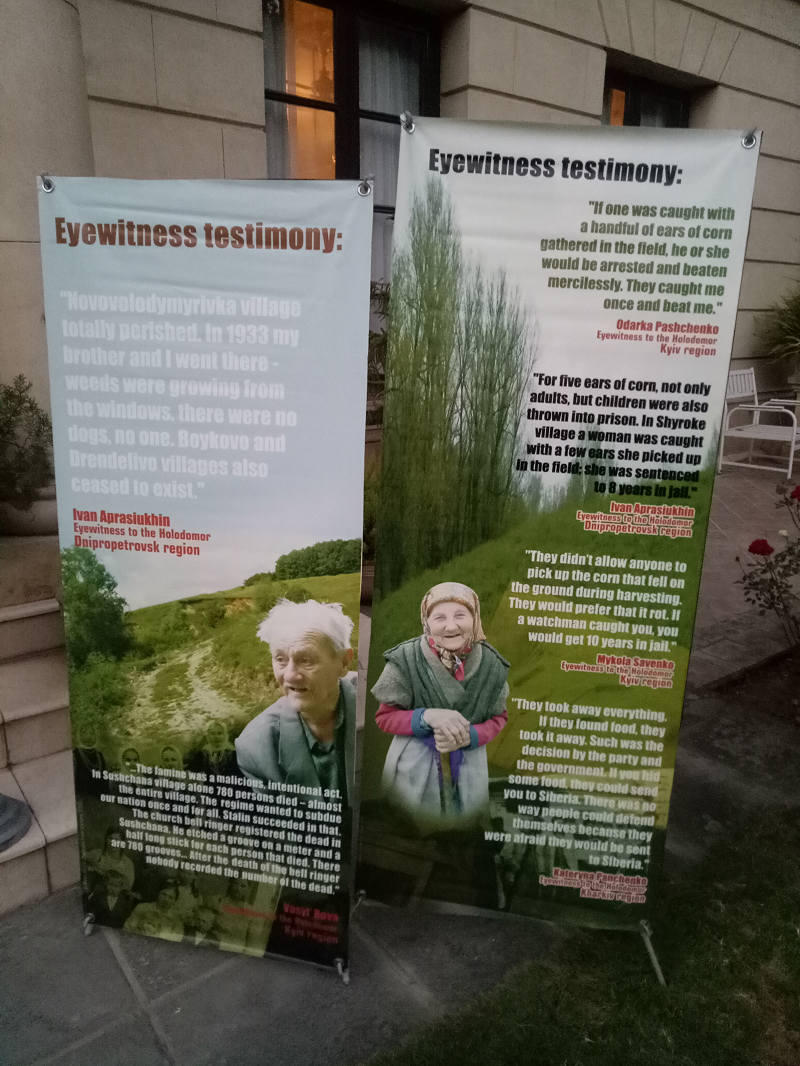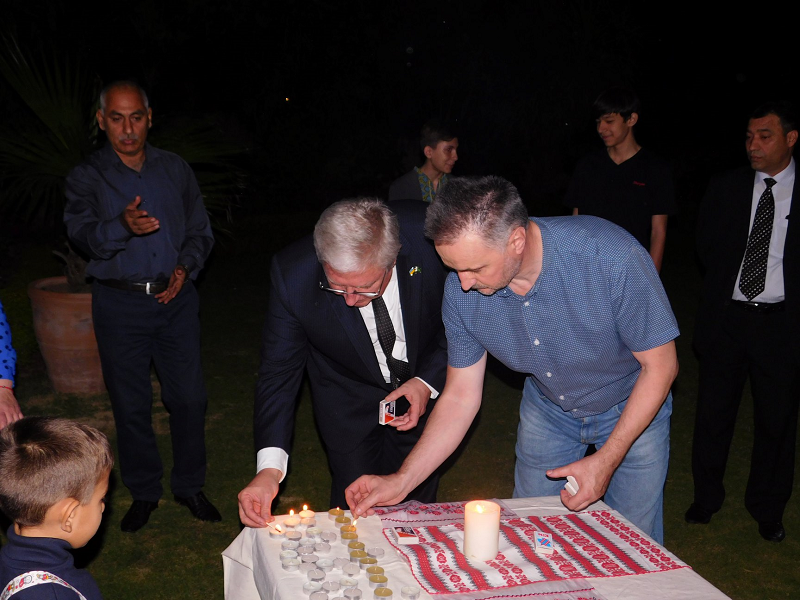Islamabad, Pakistan: The candle lit ceremony was observed here in Ukrainian Embassy on Friday to pay homage to over 7.5 million Ukrainians who lost their lives in man-made famine and genocide imposed by former Soviet Union during 1932-33 over the then Ukrainian SSR.
Ambassador of Ukraine in Pakistan Lakomov Volodymyr Ivanovich along with Ukrainian families held candle lit ceremony in remembrance of one of the most tragic event which is called Holodomor (Ukranians call it as Golodomor) that caused death of 7.5 million Ukrainians.
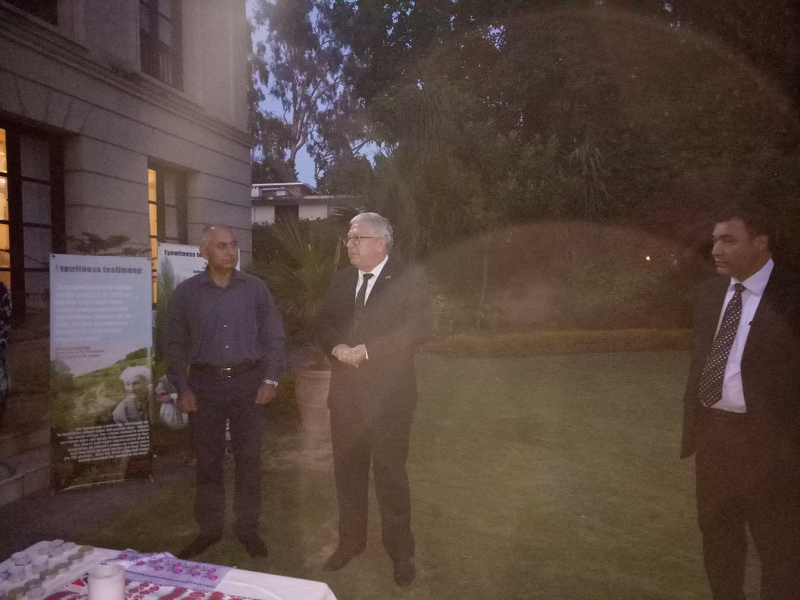
While addressing the ceremony, Ambassador Lakomov Ivanovich remembered how Ukrainians were purged under Soviet Union authorities and stated that Ukrainians as nation would never forget what happened to them under Soviet rulers.
The event was held by Association of Pakistani graduates from Ukraine. Chairman of Association, Dr. Sarwar also expressed his views and stated that Ukraine had been gone through horrible times under former Soviet Union.
It may be remembered that Holodomor (Голодомо́р) literally means “death by hunger” took place during 1932-33. This man-made famine happened as harvests Stalin’s Soviet police enforced the brutal policy of collectivising agriculture by requisitioning grain and other foodstuffs from farmers and dumped food stuff under government control.
Several independent writers consider this event as Famine-Genocide of ethnic Ukrainians.
“On October 26, 2018 the “Light a Candle of Remembrance” action made its way to Pakistan, where the Pakistani Alumni Association of Ukrainian universities and Ukrainians of Islamabad and their friends honor the memory of the Holodomor’s victims with a moment of silence and lighting a candle of remembrance of genocide’s innocent victims”, said official statement of Embassy of Ukraine in Islamabad.
During the Holodomor, over 7.5 millions of Ukrainians, died of starvation as Soviet government took away grains from fields and nothing was left to people for eating.
Available information indicates that 1932 harvest in Soviet Union was less than expectation and authorities procured only 4.3 million tons of grain as compared with 7.2 million tons obtained from the 1931 harvest. Rations in town were drastically cut back, and in the winter of 1932–33 and spring of 1933 people in many urban areas were starved.
The urban workers were supplied by a rationing system (and therefore could occasionally assist their starving relatives of the countryside), but rations were gradually cut; and by the spring of 1933, the urban residents also faced starvation. Ukrainian farmers who grew grains were deny any share in harvest and situation was similar in Kazakhstan which was another import wheat basket of former USSR.

